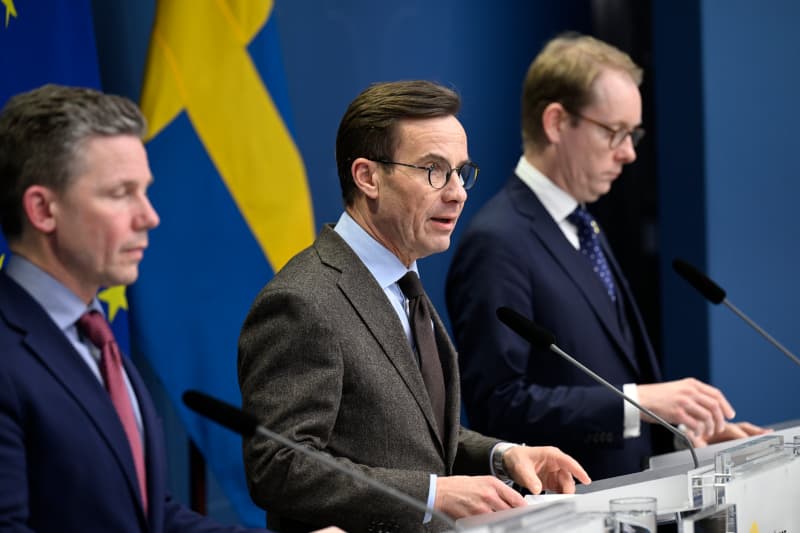Swedish government submits 'historic' Nato bill to parliament

Sweden on Wednesday set a preliminary date for parliament to vote on the government's bid to join Nato.
“[This] is a historic event and an important step on the path towards membership,” said Foreign Minister Tobias Billström.
The bill will be fast-tracked, with members of parliament given five days to attach their own proposed amendments.
It will then be processed by parliament’s foreign policy committee on March 16th, and on March 22nd parliament will be able to vote on it.
Six out of Sweden’s eight parties back the proposal, which means that it should sail through without problems. Only the Left Party and the Greens are against it.
Finland and Sweden last May dropped their decades-long policies of military non-alignment and applied to join Nato in the wake of Russia's full-scale invasion of Ukraine.
But a successful vote in parliament will not clear the way for Sweden, as Hungary and Turkey have yet to ratify its membership bid.
WHAT'S NEXT:
Talks with Turkey are set to resume on Thursday, after the country suspended negotiations in protest over the burning of the Quran outside its embassy in Stockholm.
Hungary is expected to vote to grant Sweden and Finland membership later this month.
Comments
See Also
“[This] is a historic event and an important step on the path towards membership,” said Foreign Minister Tobias Billström.
The bill will be fast-tracked, with members of parliament given five days to attach their own proposed amendments.
It will then be processed by parliament’s foreign policy committee on March 16th, and on March 22nd parliament will be able to vote on it.
Six out of Sweden’s eight parties back the proposal, which means that it should sail through without problems. Only the Left Party and the Greens are against it.
Finland and Sweden last May dropped their decades-long policies of military non-alignment and applied to join Nato in the wake of Russia's full-scale invasion of Ukraine.
But a successful vote in parliament will not clear the way for Sweden, as Hungary and Turkey have yet to ratify its membership bid.
WHAT'S NEXT:
Talks with Turkey are set to resume on Thursday, after the country suspended negotiations in protest over the burning of the Quran outside its embassy in Stockholm.
Hungary is expected to vote to grant Sweden and Finland membership later this month.
Join the conversation in our comments section below. Share your own views and experience and if you have a question or suggestion for our journalists then email us at [email protected].
Please keep comments civil, constructive and on topic – and make sure to read our terms of use before getting involved.
Please log in here to leave a comment.